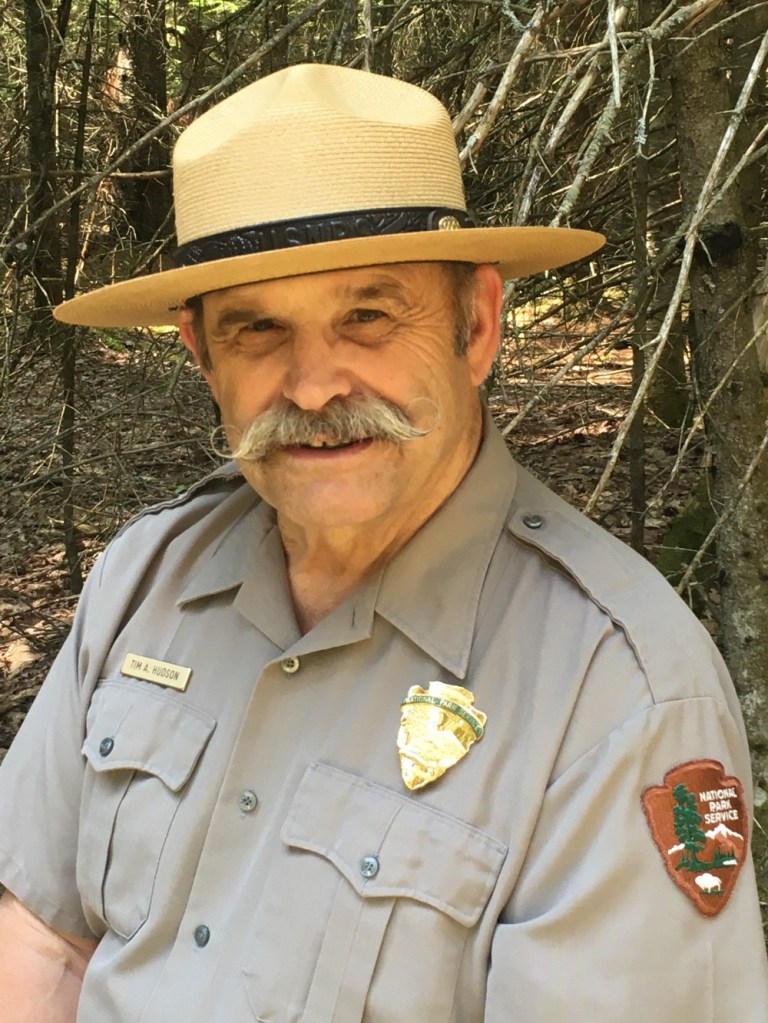The first two staff members in Maine’s new national monument were already on the job Thursday, opening an office in Millinocket and beginning the lengthy process of building community relations.
The National Park Service named Tim Hudson, a veteran parks employee living in Bangor, as superintendent of the new Katahdin Woods & Waters National Monument. And one of Hudson’s first official jobs was opening an office to the public on Millinocket’s Penobscot Avenue, one of the main thoroughfares in a town where many residents opposed the creation of the 87,500-acre national monument. The agency also plans to open an office in Patten.
“Everything went very well in Millinocket today,” Hudson said Thursday evening in a phone interview. “People have been very friendly and a lot of people have come in … and have said, ‘I didn’t support it, but now that it’s here, I want to make it work.’ ”
On Wednesday, President Obama used his executive authority to designate 87,500 acres east of Baxter State Park as a national monument that will be managed by the National Park Service. Entrepreneur and conservationist Roxanne Quimby donated the land to the federal government this month as part of the National Park Service’s 100th anniversary on Thursday.
Hudson has worked for the National Park Service since the late 1960s, with much of his career spent in facilities and project management at parks throughout the country.
He worked for 20 years as chief of maintenance at Yellowstone National Park and was associate regional director for operations as well as chief of maintenance for the park service in Alaska. In his most recent position, Hudson led the park service’s $300 million program to restore areas of the Northeast damaged by Hurricane Sandy, which, according to the agency, was the largest restoration program in park service history.
“Tim is an innovative leader who has dedicated his career to building partnerships and advancing creative approaches to park management,” Mike Caldwell, Northeast regional director for the National Park Service, said in a statement. “We are excited about having Tim work with the local community and partners as we assume responsibility for this remarkable gift.”
As the superintendent of the Katahdin Woods & Waters National Monument, Hudson will be charged with overseeing planning and implementation for the new monument. The land was already being managed by Quimby’s nonprofit foundation, Elliotsville Plantation Inc., as a recreation area but has few facilities for visitors.
A major part of Hudson’s job will be working with local community members, many of whom opposed the creation of a national monument in their backyard and are distrustful of the federal government. He will be joined by Christina Marts, who will work as community planner for the first several months at the national monument. Marts most recently served as deputy superintendent of the Marsh-Billings-Rockefeller Historical Park and Saint Gaudens National Historic Site in Vermont.
Hudson will hold the first of several community forums or listening sessions during the week of Sept. 12, the exact date and location to be announced at a later time. The park service will hold similar events throughout the region to gather feedback from local residents about their concerns and ideas for how the land should be managed. That feedback will be used to help prepare a more immediate and a longer-term general management plan for the monument.
“I want to listen to what people’s concerns are and where we need to go,” Hudson said. “There are a lot of things to talk about.”
Obama’s designation of the national monument ended a more than decade-long push by Quimby and her family to put land in the North Woods under federal protection, either through a national park or national monument. Elliotsville Plantation Inc. plans to establish a $40 million endowment that could be tapped to help cover some initial operations and maintenance costs at the national monument but is intended to be a long-term source of revenue for the monument.
The monument is already open for recreational use, including hiking, fishing, camping, cross-country skiing and other activities. Snowmobiling and hunting will be allowed in designated areas.
Send questions/comments to the editors.



